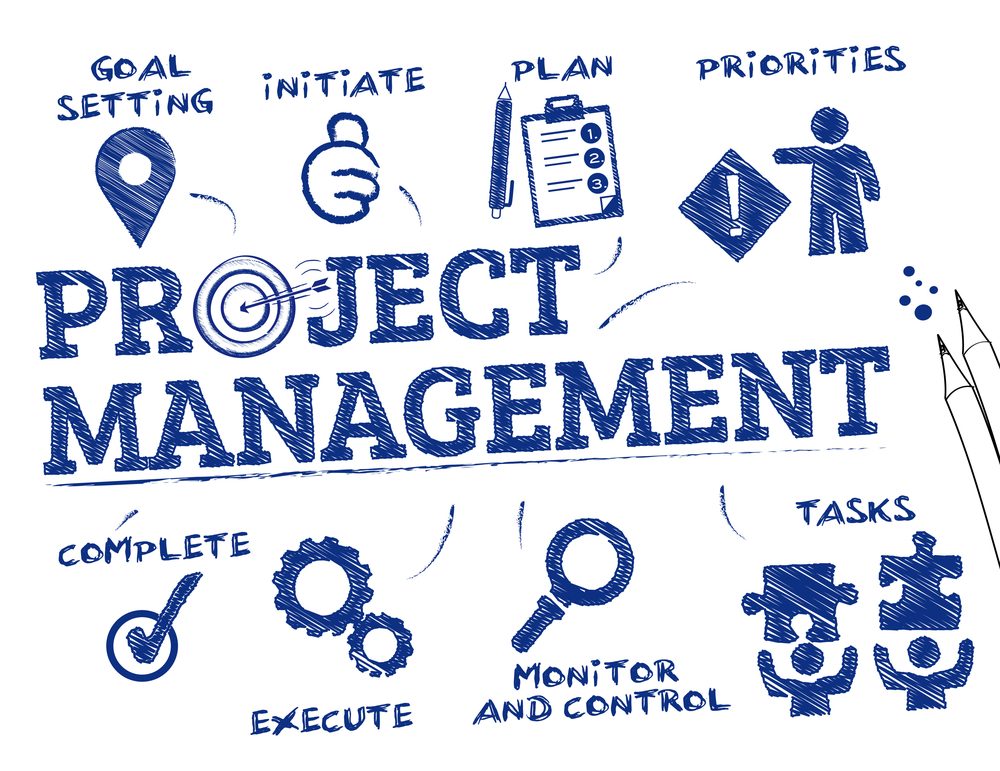How to Create the Perfect Project Management Plan

A well-crafted project management plan serves as a roadmap to guide project teams from conception to successful completion. It aligns stakeholders, defines roles and responsibilities, and sets timelines, budgets, and deliverables. Without a solid plan, projects can quickly derail due to unclear objectives, poor communication, and lack of direction.
To create the perfect project management plan, you need a comprehensive approach that addresses every critical aspect of the project. This guide will take you step-by-step through the essential elements of a project management plan, ensuring you build a blueprint for success.
1. Define the Project Scope
The first step in creating a perfect project management plan is to clearly define the project scope. The project scope outlines the boundaries of the project, including what is included and excluded. It describes the project goals, deliverables, and any constraints or limitations.
Key Components of the Project Scope:
- Objectives: Identify what the project aims to achieve. Objectives should be specific, measurable, attainable, relevant, and time-bound (SMART).
- Deliverables: List the tangible or intangible outcomes of the project, such as products, services, or results.
- Exclusions: Clearly state what will not be included in the project to avoid scope creep.
- Constraints: Define any limitations on time, budget, or resources that may impact the project.
Pro Tip: Ensure that stakeholders sign off on the scope to prevent misunderstandings or disputes later in the project.
2. Identify Stakeholders and Define Roles
Stakeholder identification is crucial to the success of your project. Stakeholders include anyone who is affected by the project or has a vested interest in its outcome. This may include project sponsors, team members, clients, and end-users.
Once stakeholders are identified, clearly define their roles and responsibilities. This ensures accountability and facilitates smoother communication throughout the project lifecycle.
Key Steps:
- Stakeholder Analysis: Use a stakeholder analysis matrix to identify key stakeholders and their influence on the project.
- RACI Matrix: Develop a RACI matrix (Responsible, Accountable, Consulted, and Informed) to clarify the roles of team members in various tasks.
Pro Tip: Engage stakeholders early in the planning process and maintain open lines of communication to manage expectations effectively.
3. Create a Work Breakdown Structure (WBS)
The Work Breakdown Structure (WBS) is a visual representation of the project’s scope broken down into smaller, manageable components. The WBS divides the project into tasks and subtasks, ensuring that every part of the project is accounted for.
A well-defined WBS provides clarity on what needs to be done and helps in organizing tasks by priority, timelines, and dependencies.
Key Elements of a WBS:
- Hierarchical Decomposition: Break down the project deliverables into smaller tasks.
- Task Assignment: Assign each task to specific team members, ensuring accountability.
- Dependencies: Identify dependencies between tasks and determine their sequencing.
Pro Tip: Involve your project team in the creation of the WBS to ensure that nothing is overlooked and that everyone understands their responsibilities.
4. Set a Realistic Timeline and Milestones
Time management is crucial in project planning. Establishing a realistic timeline with well-defined milestones ensures that the project stays on track. Start by identifying key milestones, which are significant points in the project where certain deliverables are completed or where critical decisions must be made.
Use project scheduling tools like Gantt charts to visualize the project timeline and track progress over time. Break the timeline into phases and set deadlines for each task and milestone.
Steps to Create a Timeline:
- Task Sequencing: Sequence tasks based on dependencies and prioritize critical tasks that must be completed on time.
- Estimation: Estimate the time required for each task based on historical data and team capacity.
- Buffer Time: Allow for buffer time to account for uncertainties and potential delays.
Pro Tip: Communicate the timeline to all stakeholders and adjust it as necessary to reflect changes in project scope or resources.
5. Develop a Resource Management Plan
A resource management plan outlines the resources—people, equipment, and materials—needed to complete the project successfully. This plan helps you allocate resources effectively, ensuring that the right resources are available at the right time.
To create an efficient resource management plan, consider the following:
- Human Resources: Identify the skills and expertise needed and assign roles accordingly.
- Material and Equipment: List any equipment, software, or materials that are required for the project.
- Budget Allocation: Ensure that resources are aligned with the project budget, and monitor resource usage to prevent over-expenditure.
Pro Tip: Use resource management software to track resource allocation and availability in real-time, avoiding overallocation or bottlenecks.
6. Establish a Budget and Cost Management Plan
Budgeting is one of the most critical aspects of project management planning. A well-planned budget ensures that your project remains financially viable from start to finish. The budget should cover all project expenses, including labor, materials, equipment, and any unforeseen costs.
Create a detailed cost management plan that outlines how you will monitor and control costs throughout the project. This should include:
- Cost Estimation: Break down costs for each task or deliverable based on resource requirements.
- Contingency Plan: Set aside a contingency budget for unexpected expenses or risks.
- Cost Monitoring: Use tools such as Earned Value Management (EVM) to track the project’s financial performance against the budget.
Pro Tip: Regularly review the budget to ensure you’re staying within financial limits, and make adjustments if necessary.
7. Plan for Risk Management
Every project involves risks that could impact timelines, budgets, and deliverables. Developing a robust risk management plan helps you identify potential risks early and plan for mitigation strategies.
Steps for Risk Management:
- Risk Identification: Identify risks that could affect the project, including external factors (market changes, regulatory issues) and internal factors (resource shortages, technical challenges).
- Risk Assessment: Assess the probability and impact of each risk using a risk matrix.
- Mitigation Strategies: Develop contingency plans for high-impact risks and assign risk owners responsible for monitoring and managing specific risks.
Pro Tip: Regularly update your risk management plan as new risks emerge during the project lifecycle.
8. Create a Communication Plan
Effective communication is essential for project success. A communication plan outlines how information will be shared among stakeholders, ensuring everyone is informed about project progress, decisions, and changes.
Key Components of a Communication Plan:
- Communication Methods: Determine how you will communicate with stakeholders (e.g., email, meetings, reports).
- Frequency: Specify the frequency of communications, such as weekly status updates or monthly progress reports.
- Stakeholder Communication: Tailor communication to the needs of different stakeholders—senior management may require high-level updates, while team members need detailed task-level information.
Pro Tip: Use collaboration tools like Slack, Trello, or Microsoft Teams to facilitate real-time communication among the team and stakeholders.
9. Create a Quality Management Plan
Quality management ensures that the project deliverables meet the required standards and expectations. A quality management plan outlines the criteria for evaluating project outcomes, ensuring that the project meets the agreed-upon quality standards.
Your quality management plan should address:
- Quality Standards: Define the specific quality standards for deliverables and processes.
- Quality Control: Establish metrics for assessing the quality of project outcomes, such as testing procedures, inspections, or peer reviews.
- Continuous Improvement: Implement mechanisms for continuous feedback and improvement throughout the project.
Pro Tip: Engage stakeholders in defining quality standards to ensure that deliverables meet their expectations and requirements.
10. Monitor and Control the Project
Monitoring and controlling the project involves tracking progress, managing changes, and ensuring that the project stays aligned with the plan. Establish a framework for regular monitoring of the project’s performance in terms of scope, time, cost, and quality.
Key Monitoring Activities:
- Progress Tracking: Use project management software to track progress against milestones and deadlines.
- Change Control: Implement a change control process to assess and approve changes to the project scope, timeline, or budget.
- Performance Measurement: Use performance metrics such as Key Performance Indicators (KPIs) to measure project success.
Pro Tip: Hold regular project review meetings to assess progress and make course corrections as necessary.
Conclusion
Creating the perfect project management plan requires a methodical and comprehensive approach. By defining the project scope, setting clear timelines, managing resources, and establishing robust communication, quality, and risk management plans, you can ensure your project is set up for success. Additionally, monitoring progress and making necessary adjustments along the way will help keep your project on track, leading to the desired outcomes.
Implementing these best practices will not only help you avoid common pitfalls but also enhance the overall efficiency and effectiveness of your project management efforts.



